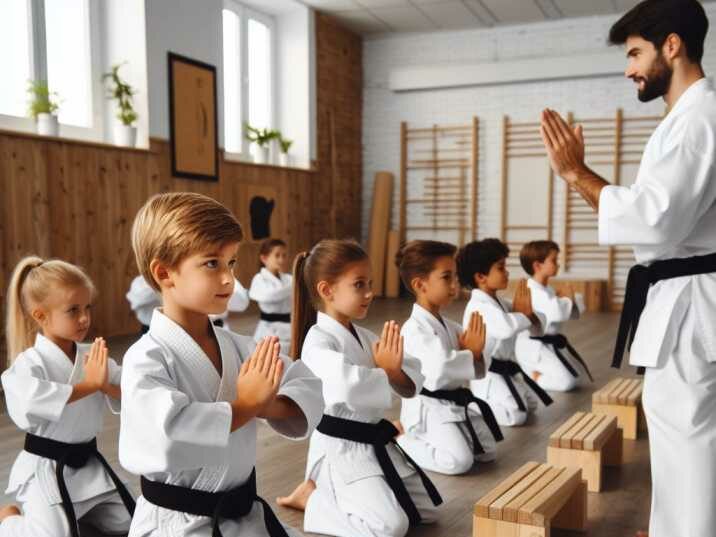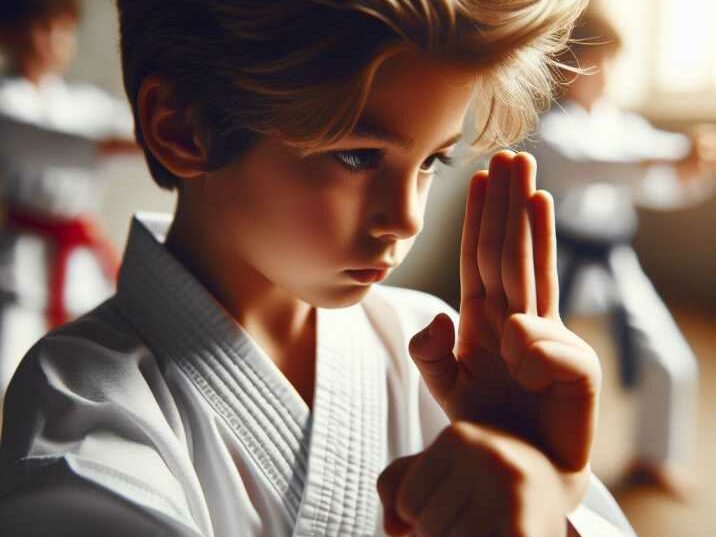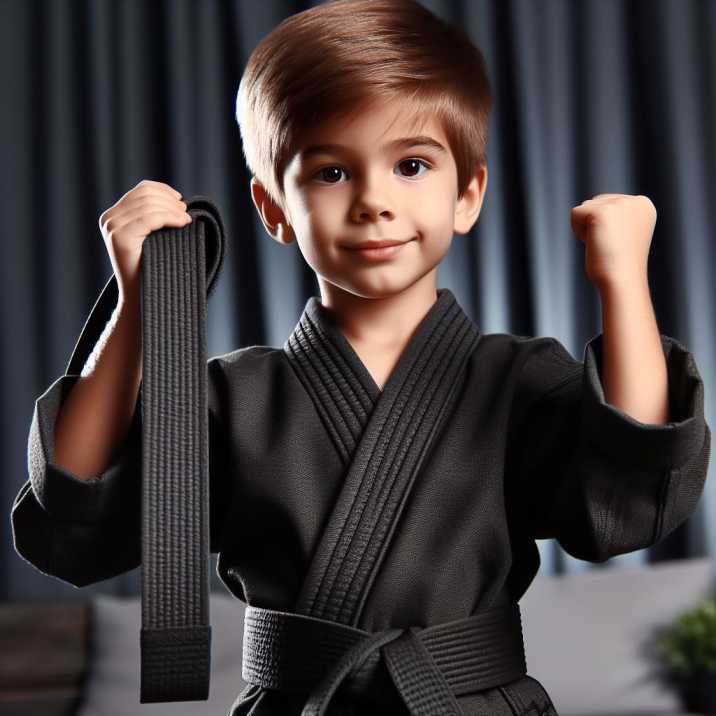Introduction
Table of Contents
The Power of Kids Karate
In a world that constantly evolves, parents seek holistic approaches to nurture their children. Kids Karate, a discipline rooted in tradition and enriched with physical and mental benefits, has emerged as a powerful tool for child development. In this comprehensive guide, we delve into the transformative aspects of Kids Karate, shedding light on its impact, techniques, and frequently asked questions.

7 Benefits of Kids Karate
1: Physical Fitness and Coordination
Kids Karate isn’t just about kicks and punches; it’s a dynamic physical activity that promotes overall fitness. Through carefully crafted movements, children enhance their agility, flexibility, and coordination, laying the foundation for a healthy lifestyle.
2: Mental Discipline and Focus
Beyond the physical aspects, Kids Karate instills mental discipline and focus. The practice of katas and forms demands concentration, teaching children to channel their energy effectively, both inside and outside the dojo.

3: Self-Confidence and Emotional Resilience
As children progress in their Karate journey, they develop a sense of accomplishment and self-confidence. Learning to overcome challenges and setbacks builds emotional resilience, crucial for navigating life’s ups and downs.
4: Social Skills and Teamwork
Karate classes provide a unique social setting where children learn to interact, respect, and collaborate with their peers. The sense of camaraderie fostered in the dojo extends beyond, positively impacting their social skills and ability to work in a team.
5: Self-Defense Skills
One of the primary reasons parents enroll their children in Kids Karate is to equip them with self-defense skills. Through practical techniques and situational awareness, children gain the confidence to protect themselves when needed.
6: Improved Academic Performance
Surprisingly, the benefits of Kids Karate extend to academic performance. The discipline and focus cultivated in the dojo often translate into enhanced concentration and better study habits, positively impacting a child’s academic journey.
7: Stress Relief and Emotional Well-being
In today’s fast-paced world, children encounter stressors from various sources. Kids Karate provides a healthy outlet for stress relief, promoting emotional well-being and a balanced approach to life.
The Journey of a Kids Karate Student
1: White Belt Beginnings
Every Kids Karate journey begins with the coveted white belt. This section explores the initial stages, focusing on the fundamental techniques, etiquette, and the building of a strong foundation.
2: Colored Belt Progression
Advancing through colored belts signifies a student’s growth in skill and knowledge. We delve into each belt level, highlighting the specific challenges and milestones associated with their progression.
3: The Black Belt Achievement
Achieving a black belt is a significant milestone in a Kids Karate student’s journey. Here, we explore the dedication, perseverance, and skills required to reach this pinnacle of accomplishment.

Conclusion
In conclusion,Kids Karate transcends being a mere extracurricular activity; it is a transformative journey that positively impacts a child’s physical, mental, and emotional well-being. The discipline, self-confidence, and life skills acquired in the dojo pave the way for a resilient and empowered future. As parents, understanding the holistic benefits of Kids Karate empowers us to make informed decisions for our children’s growth and development.

FAQs
Your Karate Queries Answered
Q1: At what age can children start practicing Kids Karate? A: Children can start Kids Karate as early as 3 years old, with specialized programs designed for their developmental stage.
Q2: How often should children attend Karate classes? A: It is recommended for children to attend Karate classes 2-3 times a week for optimal progress and skill development.
Q3: Is Kids Karate safe for children? A: Yes, when taught by qualified instructors, Kids Karate is a safe and structured activity that prioritizes the well-being of participants.
Q4: What equipment is required for Kids Karate? A: Basic equipment includes a Karate uniform (gi), a belt, and protective gear such as hand pads and a mouthguard for advanced levels.
Q5: Can Kids Karate help with discipline issues? A: Yes, the discipline instilled in Karate classes often translates to improved behavior and focus in other aspects of a child’s life.
Q6: Are there competitive opportunities for Kids Karate? A: Yes, many Kids Karate programs offer opportunities for competitions at regional and national levels, fostering a healthy sense of competition.
Q7: How long does it take to earn a black belt in Kids Karate? A: The time to achieve a black belt varies, but it typically takes several years of dedicated practice, commitment, and consistent progress.
Q8: What is the role of parents in supporting their child’s Kids Karate journey? A: Parents play a crucial role in providing encouragement, attending classes, and fostering a positive attitude toward the child’s Karate journey.
Q9: Can Kids Karate help with bullying issues? A: Yes, Kids Karate equips children with the confidence and skills to handle bullying situations, promoting a sense of self-assurance.
Q10: Are there different styles of Kids Karate? A: Yes, there are various styles of Kids Karate, with Shotokan, Wado-Ryu, and Goju-Ryu being among the most widely practiced.
Q11: What are the etiquette and rules in a Kids Karate class? A: Kids Karate classes emphasize respect, discipline, and adherence to the dojo’s rules, fostering a positive and structured learning environment.
Q12: How can Kids Karate benefit children with special needs? A: Kids Karate can be adapted to accommodate children with special needs, promoting physical activity, social interaction, and improved focus.
